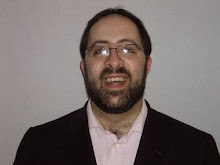Our religion is full of interesting and meaningful customs and laws that connect to the world around us. We are about to experience the obligation of two blessings that are not said very often at all. The first, the blessing of Trees or Birkhat HaIlanot is said annually; but the second blessing over the Sun is said once in 28 years. It was last said in 1981 when I was at Cheder in Edinburgh, and will be next said when I will please G-d have reached retirement age...just about!
Let us look here at the blessing on Trees.
The source of this blessing is the Talmud, which in Tractate Berachot 43b states:
“Says Rav Yehudah, ‘The one who goes out in Nisan and sees trees in blossom, should say ‘Blessed is the one who does not lack anything in His world and created in it good creations and good and pleasant trees in order for people to derive benefit’’”.
This statement finds itself in the major codes of Jewish law, including Rambam’s code and in the Shulchan Aruch of Rabbi Yosef Karo. However there are a few questions surrounding the blessing that have differing opinions:
• The time of the blessing. Although the Talmud clearly states Nisan, some early authorities felt that this was not being totally specific and was a rough guide. If trees blossomed in Adar this would also be an acceptable time to bless, and if trees did not blossom until Sivan this also would be fine. There is an opinion that one should not however bless on almond blossom that buds before Nisan. The point here is that one knows that almonds blossom early regularly each year. If a tree blossoms unusually early one year, the blessing is permitted to be said.
• Should we make a blessing when fruit buds. There is an opinion of an early authority known as the Mordechai (1250-1298, German rabbi) that one should bless a second time when fruit begins to form on the tree, although this is rejected by most authorities, including the Shulchan Aruch who clearly states ‘one should only bless once each year, and if one delayed to bless until the fruit had grown, he should not any more bless’.
• One tree or many trees. There is one way of beautifying the saying of this blessing which is to say it on more than one tree, not a single one. In fact the version of the Talmud that is in our hands has the word ‘trees’ in the plural, which could be understood as one being required to bless on sight of a number of trees, not one. Again, this in best practise so to speak in performing the blessing, however if one blessed over one tree it is acceptable. The Caf HaChayim a modern day Sephardi authority actually suggest that the best way to recite the blessing is in a minyan and followed by kaddish. It is also best practise to say the blessing on Rosh Chodesh Nisan itself.
• Blessings are divided into different categories, and an interesting question in what category would the blessing on trees fall into. Some say that it is blessing where one gains benefit, like blessings over consuming food, or nice smells. An alternate understanding is that it is a blessing of praise of G-d. In fact this difference can impact on halacha regarding the blessing. For instance if I should only bless on fruit trees, I could imply that it is the benefit to me that is important here. But if I hold that I could bless even on non-fruit trees that simply look beautiful, the blessing would seem to be one of praising G-d for the diversity that He created in the world.
The idea that would seem to rise out of reciting this blessing is that G-d’s creation was built purposefully for the benefit of humankind. There is nothing lacking in creation that cannot match our needs, and fruit trees are representative of this diversity. It may be that we bless when the blossom grows because we know at that point that fruit is on its way. Kabbalists derive much meaning from this blessing, discussing through it concepts such as renewal, and even transmigration of the soul into the animal or vegetable world.
Tuesday, 24 March 2009
Subscribe to:
Post Comments (Atom)

No comments:
Post a Comment